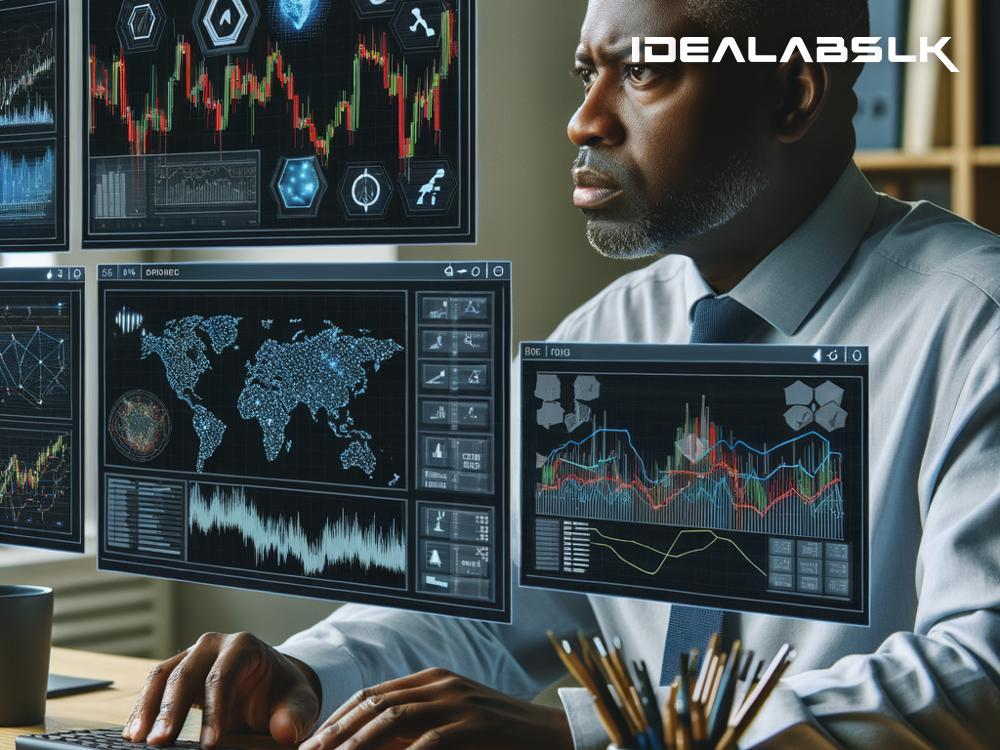AI for Trading: Guiding Investors Towards Smarter Decisions
In today's fast-paced world, where the stock market's ebb and flow can make or break fortunes in a matter of minutes, traders are constantly seeking ways to stay one step ahead. Enter Artificial Intelligence (AI) - the game-changing technology that's revolutionizing the way we approach trading. AI's influence has permeated various sectors, but its impact on trading is particularly noteworthy. Here, we explore how AI can assist traders in making data-driven investment decisions, essentially guiding them toward smarter, more informed choices.
Understanding AI in Trading
At its core, AI in trading involves using computer algorithms and machine learning to analyze market data at speeds and depths impossible for human traders. These AI systems can sift through vast amounts of data - from price changes and news articles to social media trends - to identify potential market movements before they happen.
The Power of Predictive Analysis
One of the most fascinating aspects of AI in trading is predictive analysis. By analyzing historical data and identifying patterns, AI algorithms can predict future market trends. This isn't about gazing into a crystal ball; it's about using hard data to make educated guesses. For traders, this means getting insights into which stocks are likely to rise or fall, enabling them to make moves ahead of the curve.
Real-time Decision Making
The stock market is incredibly volatile, with conditions changing from one moment to the next. AI excels in this environment by processing real-time data, enabling traders to make quick decisions. What's more, AI can execute trades at optimal times, capitalizing on market conditions to maximize profits or minimize losses.
Risk Management
Investing always involves a degree of risk. However, AI can help mitigate these risks through sophisticated analysis. By assessing market conditions and a trader's portfolio, AI can recommend diversification strategies to spread risk or suggest safer investment paths during turbulent times.
Personalized Trading Strategies
Every trader has their own set of goals, risk tolerance, and preferences. AI can tailor trading strategies to match individual requirements. By analyzing a trader's past decisions and their outcomes, AI can offer personalized advice, enhancing the chances of achieving specific investment goals.
Eliminating Emotional Trading
One of the biggest challenges traders face is keeping emotions in check. Fear and greed can lead to impulsive decisions, often to the detriment of the trader's portfolio. AI operates on pure logic and data, removing the emotional element from trading decisions. This objective approach can lead to more consistent and reliable outcomes.
The Human-AI Collaboration
While AI offers numerous advantages, it's not a substitute for human insight. The most effective trading strategies often involve a partnership between AI and human traders. AI can handle data analysis and execute trades, but human traders can provide context, intuition, and a deeper understanding of the market dynamics that AI might overlook.
Challenges and Considerations
Despite its benefits, integrating AI into trading isn't without challenges. Data privacy concerns, the potential for algorithmic errors, and the sheer complexity of developing and maintaining AI systems are significant considerations. Moreover, reliance on AI could lead to overconfidence, where traders may neglect the need for continuous learning and staying updated with market trends.
The Future of AI in Trading
As technology evolves, AI's role in trading is set to become increasingly significant. With advancements in AI algorithms and machine learning models, we can expect even more accurate predictions, personalized strategies, and efficient risk management. However, the essence of successful trading will always involve a blend of AI's analytical power and human traders' insight and judgment.
Conclusion
AI is transforming the trading landscape, offering tools that can help traders make data-driven investment decisions. From predictive analysis to risk management and personalized strategies, AI's capabilities are vast and varied. However, it's vital for traders to remember that AI complements rather than replaces human decision-making. By combining the best of both worlds, traders can navigate the complexities of the market more effectively, paving the way for smarter, more informed investment choices.
In this journey towards AI-assisted trading, embracing the technology while acknowledging its limitations will be key to unlocking the potential for greater success in the tumultuous world of stock trading.

